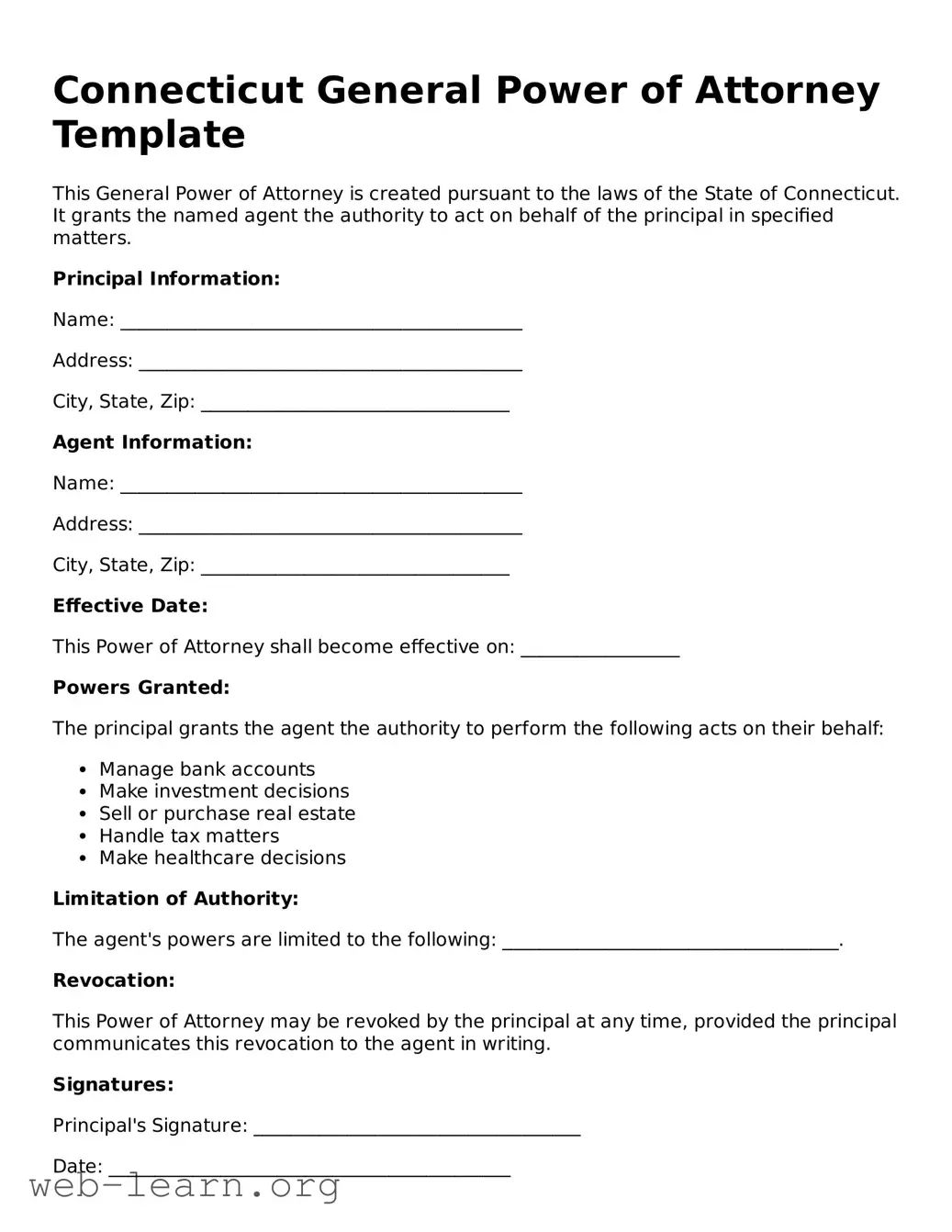Connecticut General Power of Attorney Template
This General Power of Attorney is created pursuant to the laws of the State of Connecticut. It grants the named agent the authority to act on behalf of the principal in specified matters.
Principal Information:
Name: ___________________________________________
Address: _________________________________________
City, State, Zip: _________________________________
Agent Information:
Name: ___________________________________________
Address: _________________________________________
City, State, Zip: _________________________________
Effective Date:
This Power of Attorney shall become effective on: _________________
Powers Granted:
The principal grants the agent the authority to perform the following acts on their behalf:
- Manage bank accounts
- Make investment decisions
- Sell or purchase real estate
- Handle tax matters
- Make healthcare decisions
Limitation of Authority:
The agent's powers are limited to the following: ____________________________________.
Revocation:
This Power of Attorney may be revoked by the principal at any time, provided the principal communicates this revocation to the agent in writing.
Signatures:
Principal's Signature: ___________________________________
Date: ___________________________________________
Agent's Signature: ______________________________________
Date: ___________________________________________
Witness Information:
Witness Name: ___________________________________________
Witness Address: _________________________________________
Witness Signature: _______________________________________
Date: ___________________________________________
Notary Acknowledgment:
State of Connecticut
County of ______________________
Subscribed, sworn to, and acknowledged before me by ______________________, the principal, this ____ day of ____________, 20__.
Notary Public Signature: _______________________________
My Commission Expires: _______________________________
